Customs and traditions
The customs and traditions of the UK encompass a rich tapestry of religious, cultural, and historical events, celebrated through Christian, Hindu, Sikh, Jewish, and Muslim festivals. These festivals, alongside national holidays and significant observances, reflect the diverse heritage and values of the country.
1. Christian Festivals
-
Christmas Day (25 December):Celebrates the birth of Jesus Christ. Families gather, attend church services, exchange gifts, and enjoy special meals.

-
Lent(Feb-March): Lent is the period of six weeks (40 days not including Sundays) leading up to Easter, the most important festival in the Christian calendar. It starts on Ash Wednesday and concludes with Easter Sunday. The last week of Lent is called Holy Week, which commemorates the events leading up to Jesus' crucifixion and resurrection.

-
During Lent, Christians engage in prayer, fasting, and almsgiving as a form of spiritual discipline and preparation for Easter. It is a time for reflection, repentance, and renewal of faith.
-
Easter (March-April): Easter, the most significant festival in the Christian calendar, celebrates Jesus Christ's resurrection from the dead. This joyous occasion falls on Easter Sunday, marking the culmination of Holy Week.

-
Holy Week begins with Palm Sunday commemorating Jesus' triumphant entry into Jerusalem, where crowds welcomed him with palm branches. Following Palm Sunday is Maundy Thursday, when Jesus shared the Last Supper with his disciples and instituted the sacrament of Communion.
-
On Good Friday, Christians solemnly remember Jesus' crucifixion, his body taken down from the cross and buried in a cave tomb. However, the sorrow of Good Friday gives way to the joy of Easter Sunday when Jesus rises from the dead, conquering sin and death.
-
Hogmanay (31st Dec) In Scotland: In Scotland, New Year's Eve is called Hogmanay. This celebration is one of the most significant and vibrant events in the Scottish calendar, often involving extensive festivities that include street parties, fireworks, traditional music, and dancing. For some Scottish people, Hogmanay is a bigger holiday than Christmas.
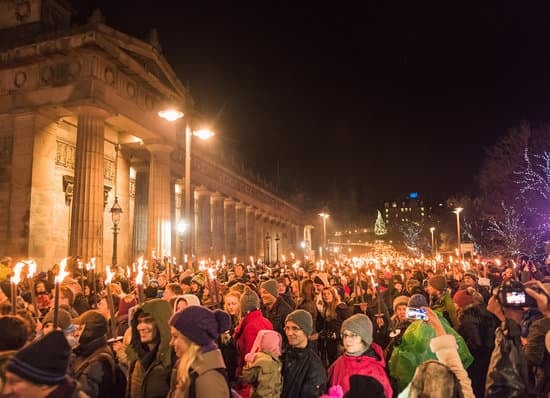
2. Hindu and Sikh Festivals:
-
Diwali: Celebrates victory over evil and the acquisition of knowledge, typically falling in October or November.

-
Vaisakhi (Baisakhi): Marks the founding of the Sikh community, celebrated on 14 April with parades and festivities.
3. Jewish Festival:
-
Hanukkah: Commemorates the Jews' struggle for religious freedom, observed in November or December.

4. Muslim Festivals:
-
Eid al-Adha: Also known as the Festival of Sacrifice, is deeply intertwined with the tradition of Qurbani, symbolizing the devout act of Prophet Ibrahim's willingness to sacrifice his son as an act of obedience to God. This festival commemorates Ibrahim's unwavering faith and his ultimate devotion to Allah.
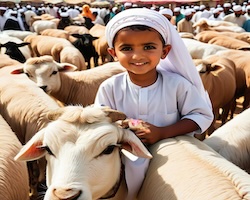
-
Eid ul-Fitr: Also known as the Festival of Breaking the Fast, celebrates the culmination of Ramadan, the holy month of fasting. It marks the joyous occasion of Prophet Mohammed's victory and his migration from Mecca to Medina, signifying a significant milestone in Islamic history. This festival is a time of gratitude, reflection, and communal unity, as Muslims come together to share blessings and express gratitude for the strength and guidance received throughout the month of fasting.
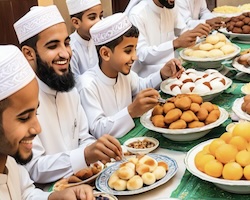
5. Bank Holidays
Bank holidays are public holidays in the UK, typically marked by the closure of banks and businesses.
- Christmas Day (25 December)
- Boxing Day (26 December)
- Easter Weekend: Includes Good Friday and Easter Monday.
- New Year's Day (1 January): Followed by 2 January in Scotland.
- May Day Bank Holiday: First Monday in May.
- Spring Bank Holiday: Last Monday in May.
- August Bank Holiday: Last Monday in August (in England, Wales, and Northern Ireland).
Scotland may have variations in bank holidays compared to other parts of the UK.
6. Significance of 11 November
11 November holds immense significance as Remembrance Day in the UK. It commemorates the end of World War I and honors the soldiers who lost their lives in various conflicts. At 11 a.m. on this day, a two-minute silence is observed across the nation as a mark of respect.
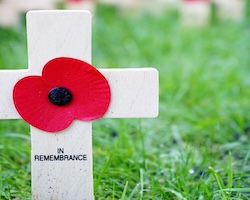
7. Valentine’s Day and Bonfire Night:
-
Valentine’s Day (14 February): This day is a celebration of love and affection. People exchange cards, gifts, and romantic gestures with their loved ones. It's a time to express and celebrate romantic feelings.
-
Bonfire Night (5 November): Also known as Guy Fawkes Night, it commemorates the failed Gunpowder Plot of 1605, where Guy Fawkes and co-conspirators attempted to blow up the Houses of Parliament. It's marked with bonfires, fireworks displays, and the burning of effigies of Guy Fawkes.
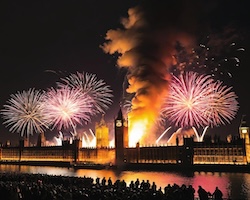
These customs and traditions not only enrich the cultural heritage of the UK but also serve as a reflection of its diverse communities and their histories.
 Try Life in the UK
Try Life in the UK